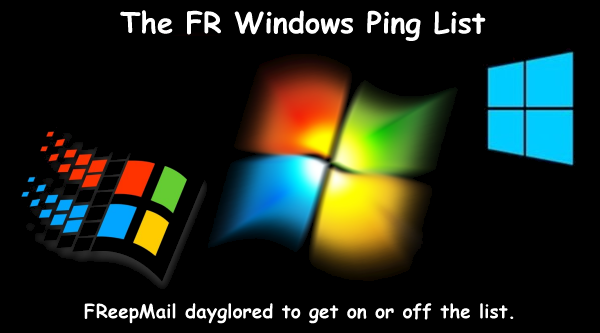
Posted on 06/09/2016 5:38:38 AM PDT by dayglored
Redmond will support it inside Azure and send code back to the FreeBSD Foundation
Microsoft has published its own distribution of FreeBSD 10.3 in order to make the OS available and supported in Azure.
Jason Anderson, principal PM manager at Microsoft's Open Source Technology Center says Redmond “took on the work of building, testing, releasing and maintaining the image” so it could “ensure our customers have an enterprise SLA for their FreeBSD VMs running in Azure”.
Microsoft did so “to remove that burden” from the FreeBSD Foundation, which relies on community contributions.
Redmond is not keeping its work on FreeBSD to itself: Anderson says “the majority of the investments we make at the kernel level to enable network and storage performance were up-streamed into the FreeBSD 10.3 release, so anyone who downloads a FreeBSD 10.3 image from the FreeBSD Foundation will get those investments from Microsoft built in to the OS.”
Code will flow both ways: Anderson says “... our intent is to stay current and make available the latest releases shortly after they are released by the FreeBSD Release Engineering team. We are continuing to make investments to further tune performance on storage, as well as adding new Hyper-V features – stay tuned for more information on this!”
Microsoft says it will support its distribution when run in Azure.
Redmond's rationale for the release is that plenty of software vendors use FreeBSD as the OS for software appliances. That reasoning was behind Microsoft's 2012 decision to ensure FreeBSD could run as a guest OS under Hyper-V. In your own bit barns, your guest OSes are your own problem. Microsoft clearly decided it needed something more predictable for Azure, although it has in the past allowed custom FreeBSDs to run as cloudy VMs.
Of course Microsoft has also allowed Linux on Azure VMs for years, so news of the FreeBSD effort feels like an effort to ensure the platforms cloud users want are available rather than a startling embrace of open source to rank with Azure's don't-call-it-a-Linux-for-switches or the announcement of SQL Server for Linux.
But it's still just a little surprising to see Microsoft wade into development of FreeBSD: this is not your father's Microsoft.
One last thing: when Microsoft announced it would ensure FreeBSD runs on Hyper-V, NetApp was one of its collaborators. NetApp knows FreeBSD inside out, because Data ONTAP is built on it. But NetApp is absent from the vendors listed in Microsoft's announcement of its FreeBSD efforts. Which might put the kybosh on our imagined cloud-spanning software-defined NetApp rigs.
Definitely NOT the Steve Ballmer kind of Microsoft any more.

Yes, and we can be sure Microsoft added no Win 10 style snooping, right?
I have been using UNIX since the mid 70’s and FreeBSD since the mid 90’s. I still run FreeBSD as 2 of my main servers in my house. I will have to give this one a try.
I doubt there would be much snooping if it’s open source.
Android is open source, but I still trust NOTHING from the folks at Google.
That's my take on it also. There are hundreds of Unix programmers who will go over Microsoft's changes with a fine-tooth comb. It would be a disaster for MS if they find anything.
So I think MS is playing it safe and keeping it clean. They'd be crazy to risk adding anything questionable.
Microsoft has created its own FreeBS
I nodded in agreement before clicking.
They will not put malicious code in the FreeBSD. But, does anything interpret, bootstrap, or manage FreeBSD? If so, that is where the malicious code will be.
Maybe that's their strategy, but frankly I doubt they would be successful at "Control". Azure is nothing compared to Amazon Web Services, and AWS has mature, full Windows Server support already. I think this is just Microsoft playing catch-up with the big boys, because otherwise Azure would become a laughingstock.
LOL!
Resistance is futile. You will be assimilated. Just wait until Google assimilates Microsoft.
Android is open source, but the individual phone manufacturers junk it up with bloatware then lock it down unless you root it.
This is the “embrace” phase. Next they will, if true to form, “extend” the OS. You all know what comes after that, right?
I bet it is spyware like Windows 10!
Trust the devil, if you must. I don't see how using a Microsoft free-bee would be better than the other alternatives.
Oh yeah, I'm sure they're 100 percent devoted to Open Source alternatives, not just out to build an incompatible version that makes every non-MS thing break.
Blue Screen of Death?
Didn't they have that for decades?
will it be as ‘immune to viruses’ as linux or the actual freebsd?
Disclaimer: Opinions posted on Free Republic are those of the individual posters and do not necessarily represent the opinion of Free Republic or its management. All materials posted herein are protected by copyright law and the exemption for fair use of copyrighted works.